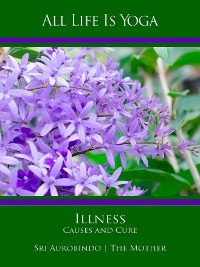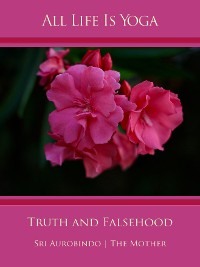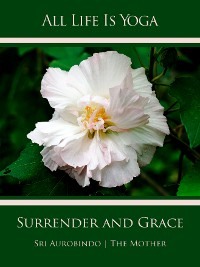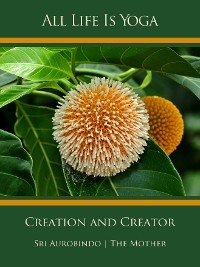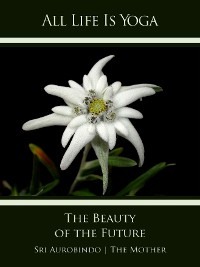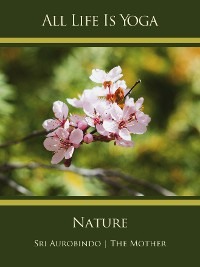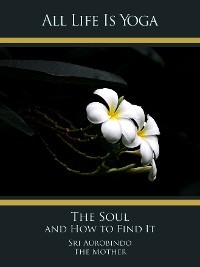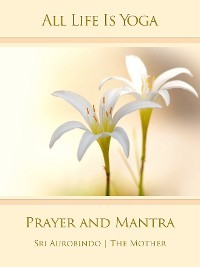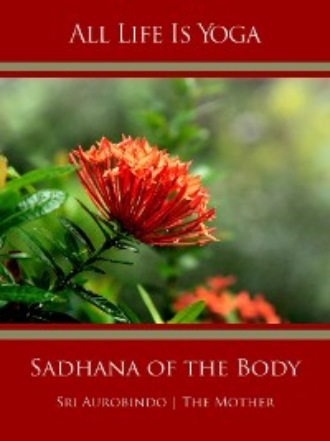
Полная версия
All Life Is Yoga: Sadhana of the Body

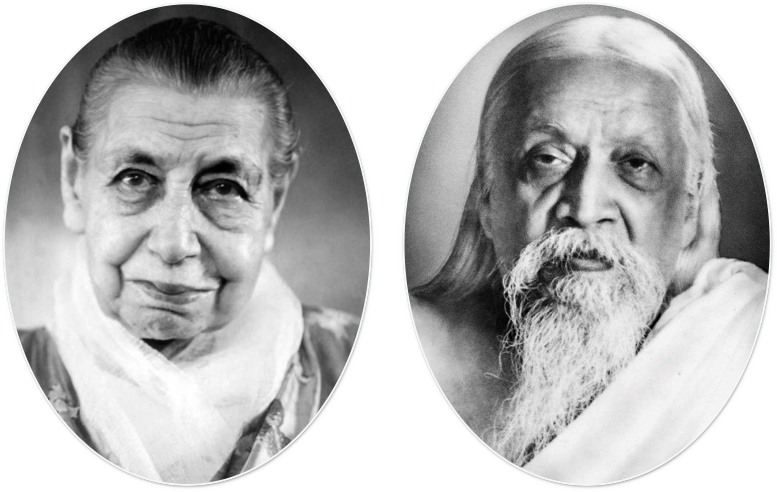
Omsriaurobindomira
All
Life
Is
Yoga
“All life is Yoga.” – Sri Aurobindo
Sadhana of the Body
Sri Aurobindo | The Mother

SRI AUROBINDO
DIGITAL EDITION

Copyright 2019
AURO MEDIA
Verlag und Fachbuchhandel
Wilfried Schuh
www.auro.media
eBook Design

SRI AUROBINDO DIGITAL EDITION
Germany, Berchtesgaden
ALL LIFE IS YOGA
Sadhana of the Body Selections from the Works of Sri Aurobindo and The Mother First edition 2019 ISBN 978-3-96387-029-3
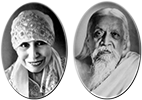
© Photos and selections of the works of Sri Aurobindo and the Mother:
Sri Aurobindo Ashram Trust
Puducherry, India

Flower on the cover:
Ixora coccinea. Deep red. Spiritual significance and explanation given by the Mother: Aspiration in the physical Manifold, simple and joyful.
Publisher’s Note
This is one in a series of some e-books created by SRI AUROBINDO DIGITAL EDITION and published by AURO MEDIA under the title All Life Is Yoga. Our effort is to bring together, from Sri Aurobindo and the Mother, simple passages with a practical orientation on specific subjects, so that everyone may feel free to choose a book according to his inner need. The topics cover the whole field of human activity, because true spirituality is not the rejection of life but the art of perfecting life.
While the passages from Sri Aurobindo are in the original English, most of the passages from the Mother (selections from her talks and writings) are translations from the original French. We must also bear in mind that the excerpts have been taken out of their original context and that a compilation, in its very nature, is likely to have a personal and subjective approach. A sincere attempt, however, has been made to be faithful to the vision of Sri Aurobindo and the Mother.
The excerpts from the writings of Sri Aurobindo and the Mother carry titles and captions chosen by the editor, highlighting the theme of the excerpts and, whenever possible, borrowing a phrase from the text itself. The sources of the excerpts are given at the end of each issue.
We hope these e-books will inspire the readers to go to the complete works and will help them to mould their lives and their environments towards an ever greater perfection.
“True spirituality is not to renounce life, but to make life perfect with a Divine Perfection.” – The Mother
* * *
ContentsTitle PageCopyrightPublisher’s NoteQuotation from Sri AurobindoI. PHYSICAL EDUCATION1. Perfection of the Body2. Control of the Body3. The Primary Importance of Physical Culture4. Principal Aspects of Physical Education5. The Discipline of the Body6. Sports and Physical Exercises7. Concentration and Dispersion8. Conscious Will9. How to Awaken in the Body an Aspiration for the Divine10. Go Beyond the Limit You Have Reached11. The Basis of Equanimity in the External Being12. The ABC of the Transformation of the BodyII. YOGA OF THE BODY1. A New Possibility for the Body2. The Body: Human and Divine3. Beginnings of the Physical Transformation4. Building the Bridge in the Body5. The Great Transition6. The Transfer of Power7. Descent of the Superman8. The Consciousness of Immortality9. The New Body of the Mother10. The Victory Over Death – Reminiscences of Nolini Kanta GuptaAPPENDIXReferencesGuideCoverTable of ContentsStart Reading
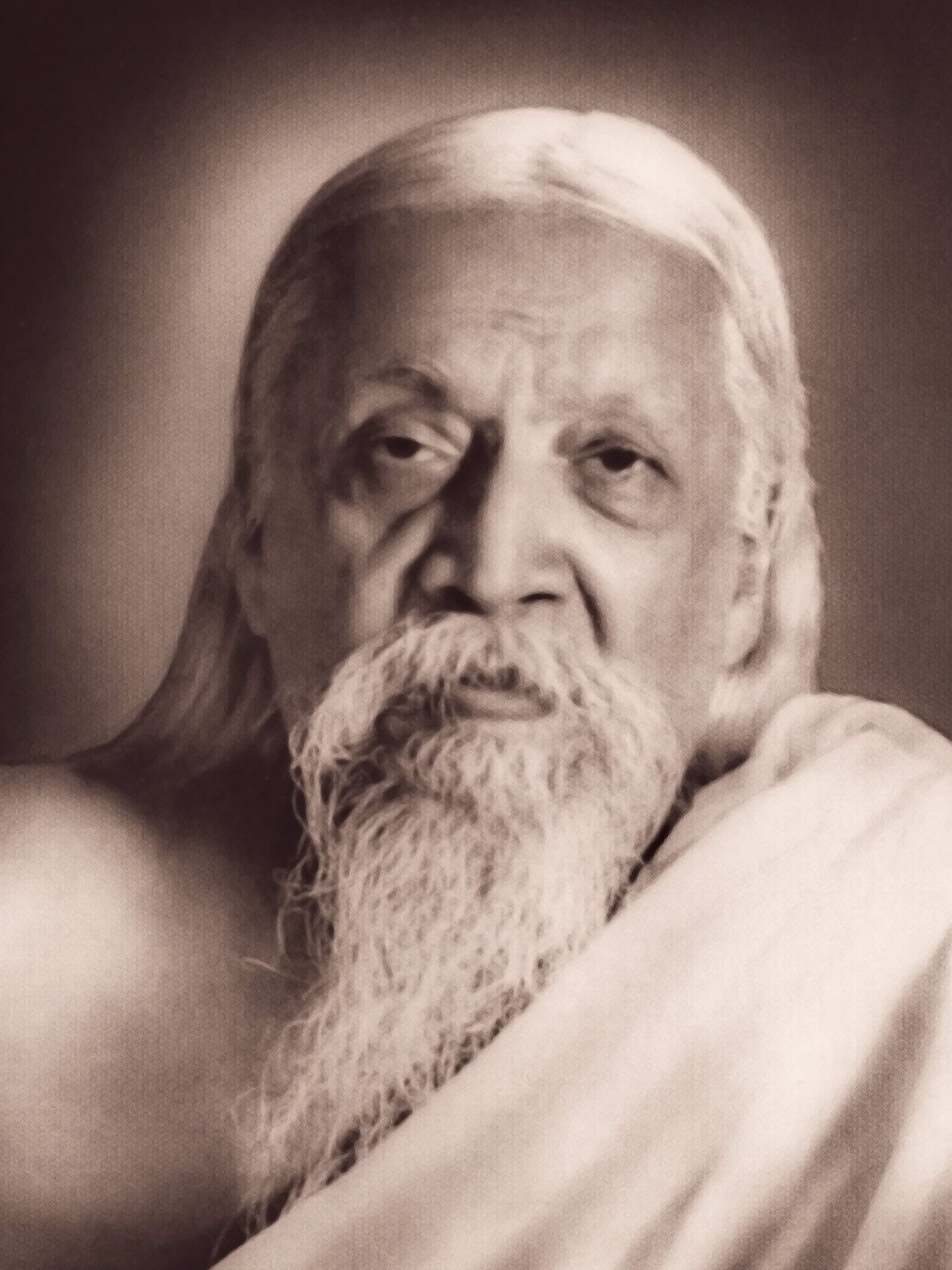
Sri Aurobindo
A divine life in a divine body is the formula of the ideal that we envisage. — Sri Aurobindo
* * *
Part 1
PHYSICAL EDUCATION
I must tell you once more that for us spiritual life does not mean contempt for Matter but its divinisation. We do not want to reject the body but to transform it. For this physical education is one of the means most directly effective. — The Mother
Chapter I
Perfection of the Body
Words of the Mother
I must tell you once more that for us spiritual life does not mean contempt for Matter but its divinisation. We do not want to reject the body but to transform it. For this physical education is one of the means most directly effective.
*
Words of Sri Aurobindo
The perfection of the body, as great a perfection as we can bring about by the means at our disposal, must be the ultimate aim of physical culture. Perfection is the true aim of all culture, the spiritual and psychic, the mental, the vital and it must be the aim of our physical culture also. If our seeking is for a total perfection of the being, the physical part of it cannot be left aside; for the body is the material basis, the body is the instrument which we have to use. Sariram khalu dharmasadhanam, says the old Sanskrit adage, – the body is the means of fulfilment of dharma, and dharma means every ideal which we can propose to ourselves and the law of its working out and its action. A total perfection is the ultimate aim which we set before us, for our ideal is the Divine Life which we wish to create here, the life of the Spirit fulfilled on earth, life accomplishing its own spiritual transformation even here on earth in the conditions of the material universe. That cannot be unless the body too undergoes a transformation, unless its action and functioning attain to a supreme capacity and the perfection which is possible to it or which can be made possible.
I have already indicated in a previous message a relative perfection of the physical consciousness in the body and of the mind, the life, the character which it houses as, no less than an awakening and development of the body’s own native capacities, a desirable outcome of the exercises and practices of the physical culture to which we have commenced to give in this Ashram a special attention and scope. A development of the physical consciousness must always be a considerable part of our aim, but for that the right development of the body itself is an essential element; health, strength, fitness are the first needs, but the physical frame itself must be the best possible. A divine life in a material world implies necessarily a union of the two ends of existence, the spiritual summit and the material base. The soul with the basis of its life established in Matter ascends to the heights of the Spirit but does not cast away its base, it joins the heights and the depths together. The Spirit descends into Matter and the material world with all its lights and glories and powers and with them fills and transforms life in the material world so that it becomes more and more divine. The transformation is not a change into something purely subtle and spiritual to which Matter is in its nature repugnant and by which it is felt as an obstacle or as a shackle binding the Spirit; it takes up Matter as a form of the Spirit though now a form which conceals and turns it into a revealing instrument, it does not cast away the energies of Matter, its capacities, its methods; it brings out their hidden possibilities, uplifts, sublimates, discloses their innate divinity. The divine life will reject nothing that is capable of divinisation; all is to be seized, exalted, made utterly perfect. The mind now still ignorant, though struggling towards knowledge, has to rise towards and into the supramental light and truth and bring it down so that it shall suffuse our thinking and perception and insight and all our means of knowing till they become radiant with the highest truth in their inmost and outermost movements. Our life, still full of obscurity and confusion and occupied with so many dull and lower aims, must feel all its urges and instincts exalted and irradiated and become a glorious counterpart of the supramental super-life above. The physical consciousness and physical being, the body itself must reach a perfection in all that it is and does which now we can hardly conceive. It may even in the end be suffused with a light and beauty and bliss from the Beyond and the life divine assume a body divine.
But first the evolution of the nature must have reached a point at which it can meet the Spirit direct, feel the aspiration towards the spiritual change and open itself to the workings of the Power which shall transform it. A supreme perfection, a total perfection is possible only by a transformation of our lower or human nature, a transformation of the mind into a thing of light, our life into a thing of power, an instrument of right action, right use for all its forces, of a happy elevation of its being lifting it beyond its present comparatively narrow potentiality for a self-fulfilling force of action and joy of life. There must be equally a transforming change of the body by a conversion of its action, its functioning, its capacities as an instrument beyond the limitations by which it is clogged and hampered even in its greatest present human attainment. In the totality of the change we have to achieve, human means and forces too have to be taken up, not dropped but used and magnified to their utmost possibility as part of the new life. Such a sublimation of our present human powers of mind and life into elements of a divine life on earth can be conceived without much difficulty; but in what figure shall we conceive the perfection of the body?
In the past the body has been regarded by spiritual seekers rather as an obstacle, as something to be overcome and discarded than as an instrument of spiritual perfection and a field of the spiritual change. It has been condemned as a grossness of Matter, as an insuperable impediment and the limitations of the body as something unchangeable making transformation impossible. This is because the human body even at its best seems only to be driven by an energy of life which has its own limits and is debased in its smaller physical activities by much that is petty or coarse or evil; the body in itself is burdened with the inertia and inconscience of Matter, only partly awake and, although quickened and animated by a nervous activity, subconscient in the fundamental action of its constituent cells and tissues and their secret workings. Even in its fullest strength and force and greatest glory of beauty, it is still a flower of the material Inconscience; the inconscient is the soil from which it has grown and at every point opposes a narrow boundary to the extension of its powers and to any effort of radical self-exceeding. But if a divine life is possible on earth, then this self-exceeding must also be possible.
In the pursuit of perfection we can start at either end of our range of being and we have then to use, initially at least, the means and processes proper to our choice. In Yoga the process is spiritual and psychic; even its vital and physical processes are given a spiritual or psychic turn and raised to a higher motion than belongs properly to the ordinary life and Matter, as for instance in the Hathayogic and Rajayogic use of the breathing or the use of Asana. Ordinarily a previous preparation of the mind and life and body is necessary to make them fit for the reception of the spiritual energy and the organisation of psychic forces and methods, but this too is given a special turn proper to the Yoga. On the other hand, if we start in any field at the lower end we have to employ the means and processes which Life and Matter offer to us and respect the conditions and what we may call the technique imposed by the vital and the material energy. We may extend the activity, the achievement, the perfection attained beyond the initial, even beyond the normal possibilities but still we have to stand on the same base with which we started and within the boundaries it gives to us. It is not that the action from the two ends cannot meet and the higher take into itself and uplift the lower perfection; but this can usually be done only by a transition from the lower to a higher outlook, aspiration and motive: this we shall have to do if our aim is to transform the human into the divine life. But here there comes in the necessity of taking up the activities of human life and sublimating them by the power of the spirit. Here the lower perfection will not disappear; it will remain but will be enlarged and transformed by the higher perfection which only the power of the spirit can give. This will be evident if we consider poetry and art, philosophic thought, the perfection of the written word or the perfect organisation of earthly life: these have to be taken up and the possibilities already achieved or whatever perfection has already been attained included in a new and greater perfection but with the larger vision and inspiration of a spiritual consciousness and with new forms and powers. It must be the same with the perfection of the body...
The body, we have said, is a creation of the Inconscient and itself inconscient or at least subconscient in parts of itself and much of its hidden action; but what we call the Inconscient is an appearance, a dwelling place, an instrument of a secret Consciousness or a Superconscient which has created the miracle we call the universe. Matter is the field and the creation of the Inconscient and the perfection of the operations of inconscient Matter, their perfect adaptation of means to an aim and end, the wonders they perform and the marvels of beauty they create, testify, in spite of all the ignorant denial we can oppose, to the presence and power of consciousness of this Superconscience in every part and movement of the material universe. It is there in the body, has made it and its emergence in our consciousness is the secret aim of evolution and the key to the mystery of our existence.
In the use of such activities as sports and physical exercises for the education of the individual in childhood and first youth, which should mean the bringing out of his actual and latent possibilities to their fullest development, the means and methods we must use are limited by the nature of the body and its aim must be such relative human perfection of the body’s powers and capacities and the powers of mind, will, character, action of which it is at once the residence and the instrument so far as these methods can help to develop them. I have written sufficiently about the mental and moral parts of perfection to which these pursuits can contribute and this I need not repeat here. For the body itself the perfections that can be developed by these means are those of its natural qualities and capacities and, secondly, the training of its general fitness as an instrument for all the activities which may be demanded from it by the mind and the will, by the life-energy or by the dynamic perceptions, impulses and instincts of our subtle physical being which is an unrecognised but very important element and agent in our nature. Health and strength are the first conditions for the natural perfection of the body, not only muscular strength and the solid strength of the limbs and physical stamina, but the finer, alert and plastic and adaptable force which our nervous and subtle physical parts can put into the activities of the frame. There is also the still more dynamic force which a call upon the life-energies can bring into the body and stir it to greater activities, even feats of the most extraordinary character of which in its normal state it would not be capable. There is also the strength which the mind and will by their demands and stimulus and by their secret powers which we use or by which we are used without knowing clearly the source of their action can impart to the body or impose upon it as masters and inspirers.
Among the natural qualities and powers of the body which can be thus awakened, stimulated and trained to a normal activity we must reckon dexterity and stability in all kinds of physical action, such as swiftness in the race, dexterity in combat, skill and endurance of the mountaineer, the constant and often extraordinary response to all that can be demanded from the body of the soldier, sailor, traveller or explorer to which I have already made reference, or in adventure of all kinds and all the wide range of physical attainment to which man has accustomed himself or to which he is exceptionally pushed by his own will or by the compulsion of circumstance. It is a general fitness of the body for all that can be asked from it which is the common formula of all this action, a fitness attained by a few or by many, that could be generalised by an extended and many-sided physical education and discipline. Some of these activities can be included under the name of sports; there are others for which sports and physical exercises can be an effective preparation. In some of them a training for common action, combined movement, discipline are needed and for that our physical exercises can make one ready; in others a developed individual will, skill of mind and quick perception, forcefulness of life-energy and subtle physical impulsion are more prominently needed and may even be the one sufficient trainer. All must be included in our conception of the natural powers of the body and its capacity and instrumental fitness in the service of the human mind and will, and therefore in our concept of the total perfection of the body.
There are two conditions for this perfection, an awakening in as great an entirety as possible of the body consciousness and an education, an evocation of its potentialities, also as entire and fully developed and, it may be, as many-sided as possible. The form or body is, no doubt, in its origin a creation of the Inconscient and limited by it on all sides, but still of the Inconscient developing the secret consciousness concealed within it and growing in light of knowledge, power and Ananda. We have to take it at the point it has reached in its human evolution in these things, make as full a use of them as may be and, as much as we can, further this evolution to as high a degree as is permitted by the force of the individual temperament and nature. In all forms in the world there is a force at work, unconsciously active or oppressed by inertia in its lower formulations, but in the human being conscious from the first, with its potentialities partly awake, partly asleep or latent: what is awake in it we have to make fully conscious; what is asleep we have to arouse and set to its work; what is latent we have to evoke and educate. Here there are two aspects of the body consciousness, one which seems to be a kind of automatism carrying on its work in the physical plane without any intervention of the mind and in parts even beyond any possibility of direct observation by the mind or, if conscious or observable, still proceeding or capable of continuing, when once started, by an apparently mechanical action not needing direction by the mind and continuing so long as the mind does not intervene.
There are other movements taught and trained by the mind which can yet go on operating automatically but faultlessly even when not attended to by the thought or will; there are others which can operate in sleep and produce results of value to the waking intelligence. But more important is what may be described as a trained and developed automatism, a perfected skill and capacity of eye and ear and the hands and all the members prompt to respond to any call made on them, a developed spontaneous operation as an instrument, a complete fitness for any demand that the mind and life-energy can make upon it. This is ordinarily the best we can achieve at the lower end, when we start from that end and limit ourselves to the means and methods which are proper to it. For more we have to turn to the mind and life-energy themselves or to the energy of the spirit and to what they can do for a greater perfection of the body. The most we can do in the physical field by physical means is necessarily insecure as well as bound by limits; even what seems a perfect health and strength of the body is precarious and can be broken down at any moment by fluctuations from within or by a strong attack or shock from outside: only by the breaking of our limitations can a higher and more enduring perfection come. One direction in which our consciousness must grow is an increasing hold from within or from above on the body and its powers and its more conscious response to the higher parts of our being. The mind pre-eminently is man; he is a mental being and his human perfection grows the more he fulfils the description of the Upanishad, a mental being, Purusha, leader of the life and the body. If the mind can take up and control the instincts and automatisms of the life-energy and the subtle physical consciousness and the body, if it can enter into them, consciously use and, as we may say, fully mentalise their instinctive or spontaneous action, the perfection of these energies, their action too become more conscious and more aware of themselves and more perfect. But it is necessary for the mind too to grow in perfection and this it can do best when it depends less on the fallible intellect of physical mind, when it is not limited even by the more orderly and accurate working of the reason and can grow in intuition and acquire a wider, deeper and closer seeing and the more luminous drive of energy of a higher intuitive will. Even within the limits of its present evolution it is difficult to measure the degree to which the mind is able to extend its control or its use of the body’s powers and capacities and when the mind rises to higher powers still and pushes back its human boundaries, it becomes impossible to fix any limits: even, in certain realisations, an intervention by the will in the automatic working of the bodily organs seems to become possible.
Wherever limitations recede and in proportion as they recede, the body becomes a more plastic and responsive and in that measure a more fit and perfect instrument of the action of the spirit. In all effective and expressive activities here in the material world the cooperation of the two ends of our being is indispensable. If the body is unable whether by fatigue or by natural incapacity or any other cause to second the thought or will or is in any way irresponsive or insufficiently responsive, to that extent the action fails or falls short or becomes in some degree unsatisfying or incomplete. In what seems to be an exploit of the spirit so purely mental as the outpouring of poetic inspiration, there must be a responsive vibration of the brain and its openness as a channel for the power of the thought and vision and the light of the word that is making or breaking its way through or seeking for its perfect expression. If the brain is fatigued or dulled by any clog, either the inspiration cannot come and nothing is written or it fails and something inferior is all that can come out; or else a lower inspiration takes the place of the more luminous formulation that was striving to shape itself or the brain finds it more easy to lend itself to a less radiant stimulus or else it labours and constructs or responds to poetic artifice. Even in the most purely mental activities the fitness, readiness or perfect training of the bodily instrument is a condition indispensable. That readiness, that response too is part of the total perfection of the body.


